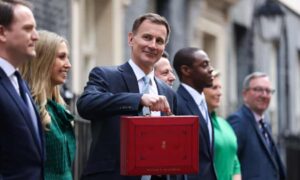
Jeremy Hunt has axed the UK’s non-dom rules, in a move that mirrors a longstanding Labour policy, and which the chancellor said would be used to cut taxes on working families in the UK.
Rules allowing some wealthy people to avoid tax on foreign earnings if they have lived in the UK for less than 14 years are to be swapped for a new regime from April 2025 in which new arrivals to the UK will not pay tax on foreign income and gains for the first four years of UK residency.
The new “modern, simpler, residency-based system” would raise £2.7bn a year overall, Hunt announced in his budget speech.
After four years, those who continue to live in the UK will pay the same tax as other UK residents under the new regime. But transitional arrangements are to be put in place for those benefiting from the current regime “recognising the contribution of many of these individuals to our economy”.
This will include a two-year period in which individuals will be encouraged to bring wealth overseas to the UK, a measure which the chancellor said would attract an additional £15bn of foreign income and generate more than £1bn of extra tax.
Hunt, who has been vocal in the past against axing the status, saying in 2022 that he “would rather wealthy foreigners spent their money in Britain”, drew laughter from the opposition benches when he claimed that he had been looking at the issue for many months.
The prime minister’s wife, Akshata Murty, has been among the UK’s “non-doms”, a status that has typically applied to people living in the UK and who are tax resident here, but who have their permanent home outside the country.
A person who is registered as non-domiciled with HM Revenue and Customs does not have to pay UK tax on income and capital gains earned overseas – including on company stocks or cash made from selling a second home – unless they bring their money into the UK or deposit it into a UK bank account.
Usually their domicile will be the country that their father considered their permanent home when they were born, and to which they intend to eventually return.
